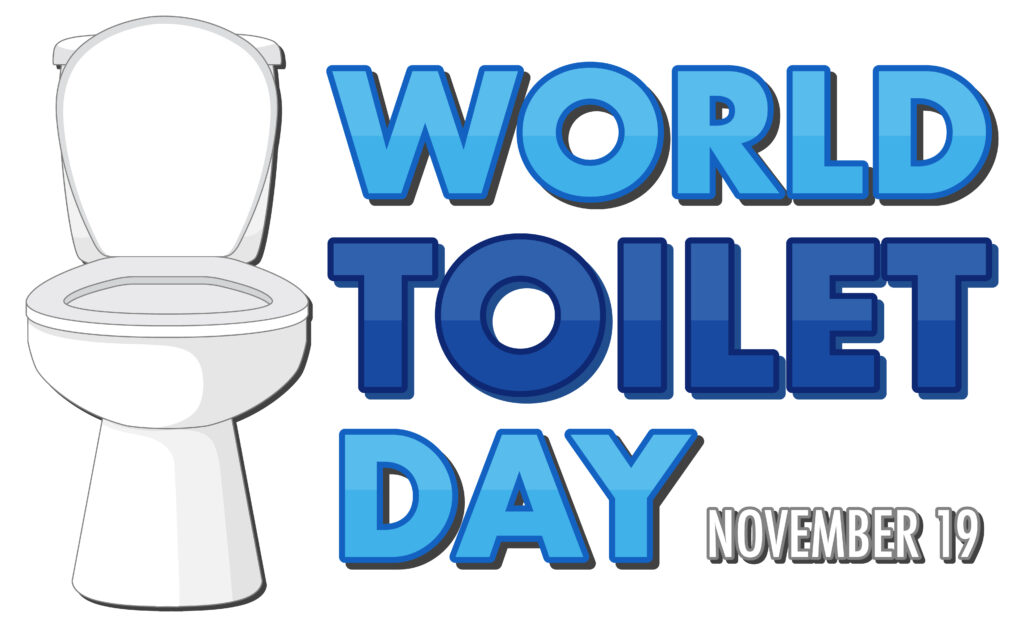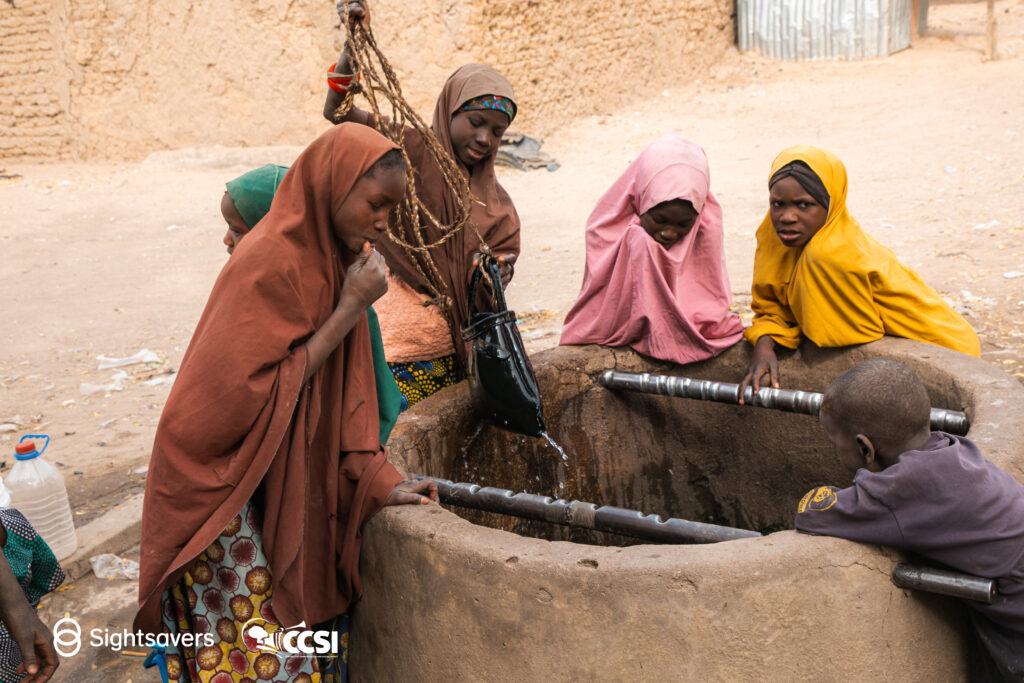Of all days to remember and commemorate, why should anyone care about toilets?

For thousands of years, man has devised crude ways to go about his business in very unlikely places. In fact, many Nigerians have mastered the art and act of taking strategic positions when evacuating their bowels. Some of the usual locations for this environmentally hazardous behaviour include, but not limited to, bushes, streams, roadside, gutters, and open spaces.
The important conversation here is not whether people answer the call of nature, but about where and how they do it. It is about the impact of their actions on their immediate environment and communities. Unsanitary actions lead to environmental contamination and health risks for all.
According to the latest World Health Organization (WHO)/United Nations Children’s Fund (UNICEF) Joint Monitoring Program report for Water Supply, Sanitation and Hygiene, globally, as of the year 2022, not less than 419 million people practiced open defecation.
Also, worldwide, there are 3.5 billion people living without safe toilets. 2 billion people – a quarter of the world’s population – lack basic handwashing facilities at home to wash their hands with soap and water.
Furthermore, unsafe water, sanitation, and hygiene is responsible for the deaths of around 1,000 children under the age of five every day. This is like having an average of ten commercial airplane crashes daily.
UNICEF/WHO therefore warns that at the current rate, 3 billion people will still be living without safe toilets, 2 billion will be without safe drinking water, and 1.4 billion will lack basic hygiene facilities by 2030. There is an urgent need to accelerate action towards provision of toilets and other hygiene facilities.
In Nigeria, the 2021 Water, Sanitation and Hygiene National Outcome Routine Mapping (WASHNORM) report revealed that about 48 million Nigerians still practice open defecation, representing 23 per cent of the population. Also, this is about 11.5 per cent of the total number of people who defecate openly worldwide. Nigeria is also ranked among the top five open defecators in the world, according to a report by WHO and UNICEF.
Sadly, Nigeria has been in the top five open defecators’ league for the past 15 years. It moved from 5th place in 2003 to 2nd place in 2015, and now 1st place in 2023.
The above sanitation indices for the country should bother anyone – citizens, private sector, government, development partners, religious institutions, civil society organizations, and others. These indices have far-reaching implications on the overall development of the country.
For instance, without proper attention to the provision of adequate sanitation facilities, including the provision of toilets in households and public places, the Sustainable Development Goals (SDGs) on health, gender equality, education, economics, and the environment, are at serious risk, according to the United Nations Water (UN-Water).
The availability of toilet facilities is therefore closely linked to the achievement of the SDG 6, which is “clean water and sanitation for all.” Little wonder that every year, UN-Water — the UN’s coordination mechanism on water and sanitation — sets the theme for World Toilet Day. This year, the focus is on Accelerating Change. This entails taking simple actions to bring about change.
With less than seven years to the 2030 target for the SDGs, the UN warns that right now, the world is off-track to meet the SDG 6 to ensure toilets for all. Hence, its charge that governments must quadruple progress to meet SDG 6 in time, particularly in Water, Sanitation and Hygiene (WASH). Nigeria is not left out of this mix, as reports have it that out of 774 Local Government Areas (LGAs) in the country, only 105 are open defecation free; 669 LGAs are still practice open defecation. This is large due to inadequate toilets and hygiene facilities in communities.
The Centre for Communication and Social Impact (CCSI) therefore joins the global community, including UNICEF, WHO, and others to call for increased and rapid investment in sanitation systems, which according to the UN, can bring five-fold returns in health, productivity, education, and jobs.
Among the many health consequences of lack of sanitation facilities, including toilets, is the risk of people, especially those in rural areas, coming down with several communicable and non-communicable diseases. Some of the diseases include diarrhoea, dysentery, hepatitis A, typhoid, polio, trachoma, among others.
This article, therefore, spotlights how the lack of hygiene facilities, especially toilets in homes and public places facilitates the community transmission of trachoma which is caused by the bacterium Chlamydia trachomatis. It is usually transmitted by direct contact such as touching infected eye secretions and other forms of direct contact such as touching infected nasal secretions. Sadly, about 5.3 million Nigerians, particularly those in rural and hard-to-reach areas, are at risk of trachoma.
Trachoma, which is the leading infectious cause of blindness worldwide, results from poor facial hygiene, limited access to water, poor sanitation, including proximity to other infected persons or to a heavy density of eye-seeking flies. Therefore, addressing the hygiene and sanitation challenges, including open defecation, in communities, can greatly reduce the burden of trachoma and other diseases.
To address the challenge of trachoma in eighteen (18) endemic LGAs across four states – Jigawa, Katsina, Sokoto, and Yobe State, CCSI, engaged by Sightsavers, through its Accelerate Project, supported the delivery of four Social Behaviour Change (SBC) interventions: Imams of Tomorrow; Clean, Beautiful, and Strong; Face plus Hand hygiene; Qazami play tales and Upgrade your Life radio series.
The interventions leveraged community social mobilization, school-based interventions, mass media campaigns, and monitoring implementation delivery.
The project, which started on December 31, 2021, and ended May 2023, contributed to educating community members about trachoma and the need for improved hygiene practices, especially by stopping open defecation, practicing hand and face washing with soap and water, and building of latrines.
As a result of the interventions, over 1,000 new latrines were constructed across the four project states.
According to the Bukola Toriola, Program Officer at CCSI, “During one of our SBC interventions called Imams of Tomorrow, religious clerics like Imams were engaged to promote hygiene through hand and face washing, and the use/building of latrines during sermons and other community-level events like naming and wedding ceremonies.
“The Imams worked with latrine builders in their communities, linking the community people/heads of households who showed the desire to build latrines after the sermon.
“During the community-level events or Jumaat prayers, the Imams facilitate the hygiene discussion using the flipchart. The Imams of Tomorrow intervention resulted in improved personal and environmental hygiene since the people readily accepted their hygiene messages.”
Nigeria, and Africa, must show commitment towards providing toilets for their people, especially those who live in rural and hard-to-reach settlements. Providing toilets and other hygiene facilities in households, schools, hospitals, religious institutions, and other public places, will go a long way to ensure the health and wellbeing of citizens. The government and all critical stakeholders must work collaboratively towards meeting the SDG 6 by the year 2030.
Some narratives in this article were culled from the Accelerate Project by Bukola Toriola.
_____________________________________________________________________________________
About Us
The Centre for Communication and Social Impact (CCSI) is a leading Social and Behaviour Change (SBC) organization with expertise in utilizing evidence from research to implement effective strategies that address barriers preventing designated audiences from adopting recommended behaviours.
Birthed by the Johns Hopkins Center for Communication Programs (JHCCP), Baltimore, USA, and registered in 2001 as a Non-Governmental Organization with the Corporate Affairs Commission of Nigeria, CCSI continues to work towards being the center of excellence in strategic communications in Africa.
Driven by values of integrity, passion, care, innovation, and excellence, CCSI focuses on the central role of strategic communication to impact behaviours, build brands, and provide technical leadership in health and social development.
